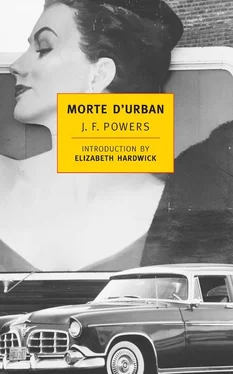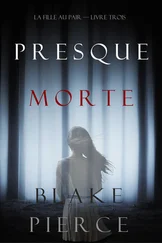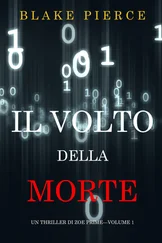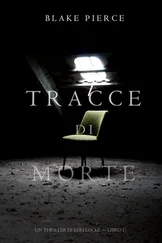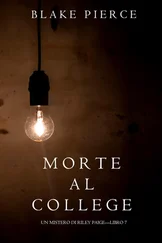“Well, I don’t know about that ,” said Father Urban. “I know there’s a difference, yes.” Where they were now, Father Urban didn’t know. Mr Studley not only made it seem that he and Father Urban were together but that he, Mr Studley, was, of the two of them, the sounder man.
Mr Studley yanked up a nice handful of Mr Zimmerman’s grass and threw it away. “Look at it the right way or not at all,” he said. “You people are always looking at things from your own viewpoint. You’ll never get it that way, I can tell you. Look at it from the employee’s viewpoint. Christ was always on the side of the employee — the little guy. That’s what Christianity means . That’s what all your great religions mean. That’s why we fought two major wars. Ask him ,” said Mr Studley, referring to Father Urban.
But before Father Urban could clarify Mr Studley’s thought, he had to clarify his own, and before he was able to do this, Mr Studley was on again, pulling grass. “Zim, if this rich man could look at it like that, why can’t you? It’s not costing you .” And with that, Mr Studley lay back on the grass and shut his eyes. “ O.K. , Zim,” he said, when Mr Zimmerman started to say something. Mr Zimmerman started again.
“If somebody in bookkeeping tried something like that on me, I’d prosecute. I’d have to — or set a bad example. See what I mean? That’s my point,” he said, looking to his two friends for support.
“I’ll grant it’s a difficult text,” said Father Urban. “But rightly understood…” he said, and let it go at that. Father Urban had some ideas of his own about this text. Our Lord, in Father Urban’s opinion, had been dealing with some pretty rough customers out there in the Middle East, the kind of people who wouldn’t have been at all distressed by the steward’s conduct — either that or people had been a whole lot brighter in biblical times, able to grasp a distinction then. It had even entered Father Urban’s mind that Our Lord, who, after all, knew what people were like, may have been a little tired on the day he spoke this parable. Sometimes, too, when you were trying to get through to a cold congregation, it was a case of any port in a storm. You’d say things that wouldn’t stand up very well in print.
The man whose wife had brought the shortcake said, “Father Tom just skips it. ‘Every year,’ he says, ‘I come to it and I just skip it. It does more harm than good,’ he says. ‘So I just skip it.’”
“Who’s Father Tom?” said Father Urban.
“I think I’ve met him,” said Mr Studley, from his prone position.
“Our pastor. He just skips it,” said Mr Shortcake.
“What about the fella that’s going along with the other fella?” said Mr Zimmerman. “He’s just as bad as the other fella.”
“Too bad Father Prosperus isn’t here. He’d be able to tell us a thing or two, I’ll bet.” This from Mrs Potato Salad.
“I guess he could at that,” said Mrs Zimmerman.
“Who’s Father Prosperus?” said Father Urban.
“Our son,” said Mrs Zimmerman.
“Your son’s a priest?”
“Yes, he’s a Dolomite father,” said Mrs Zimmerman.
“At St Ludwig’s?”
“No, at St Hedwig’s. He’s chaplain there.”
That did it for Father Urban. There hadn’t been much reason before to hope that Mr Zimmerman would make a benefactor for the Order of St Clement. Now there was none.
Mr Studley suddenly sat up and said, “C’mon over to my place, and I’ll make you a real drink.”
“No, thanks,” said Father Urban. “But I don’t mind if you have one.”
“Maybe later,” said Mr Studley, and lay down again, this time with a piece of his stomach showing.
All around Father Urban the discussion went on.
“Well now…” he said, trying, in a nice way, to end it, but nobody — nobody, with the possible exception of Mr Studley — was listening to him. Mrs Zimmerman was thoroughly involved now. Employed by Mr Zimmerman for many years as a stewardess, and hearing that she was soon to be let go, she had written off fifty percent of a debt owing to her master, a matter of fifty barrels, and naturally he was sore about it, and the party Mrs Zimmerman had accommodated — Mrs Shortcake — was also sore, saying nothing about her part in the deal. Others were in similar difficulties.
“I say…” said Father Urban, but nobody, unless Mr Studley, heard him. Father Urban glanced at the sky and signed the guest book with a flourish — just signed it. Then there was a tremendous clap of thunder, and the sky, which had been looking more and more like slate, shook, and the wind ran through the oaks, whipping up the green-gray backsides of leaves, and a dozen large raindrops hit the top of the picnic table all at the same time.
Mr Zimmerman ran to the picnic table for his scrapbook in which the carbon copies had been placed for safekeeping, fortunately. Mr Studley rose up in alarm and was last seen running down the beach, heading for his place. And Father Urban — crying, “I’d love to stay, but really I can’t,” to Mrs Zimmerman and the other women, who, of course, had run for the food on the picnic table — ran to the little Barracuda and raised its little fawn roof. But first he got rid of Frank, who had been sitting on his coat.
Halfway to Ostergothenburg, the rain let up, and then it stopped entirely. On the other side of town, on the highway leading home to the Hill, the Mellon came up behind the little Barracuda at the last stoplight and nudged it. There were girls in the Mellon now, Father Urban saw, and he also saw, as he hadn’t before, that the Mellon had no lower teeth — just a dark gap there.
“Drag?” said the driver, in whose face there was a hint of human intelligence, as there is in a shark’s.
Father Urban made no reply.
The light changed to green and the Mellon came abreast.
“ Chicken! ”
This time Father Urban, though he said nothing, and gave no sign, accepted the challenge. He was ten lengths behind when he made his decision, but slowly and surely, he gained on the Mellon, drew even with it, and still the little Barracuda was full of run. Then he let it all the way out, and shot ahead. Something was happening to the Mellon. Coughing and sneezing and emitting blue smoke, it was pulling over to the side of the road. Father Urban had been winning before this, however, and would’ve won had the race continued, and, in fact, he had won. The Mellon, though, was about the only thing he’d been able to handle in that diocese. The Mellon, and the guest book at the Zimmermans’, which, finally, when nobody would listen to him, he’d signed with a flourish, “Pope John XXIII.”
WHEN THE HISTORY of the Order in the United States came to be written, and Father Urban must have been about the only Clementine who was looking that far ahead and thinking along those lines, would what was now St Clement’s Hill go down as one more spot where the good seed of its zeal had fallen and flourished, or as another where the Order had lost out? That was the question in Father Urban’s mind, in August, when the Bishop returned from Rome. According to Monsignor Renton, the Bishop was thinking of taking over the Hill for a diocesan seminary. “You guys were all right until you went and built this course,” said Monsignor Renton — brown as a berry from playing it.
Over hill and dale, on tee and green, Father Urban pumped the trusty consultor, but although Monsignor Renton talked freely, he couldn’t tell Father Urban when or how the Bishop would move against the Clementines — only why. “He’s always wanting something.” Dear James had wanted one man’s choir director, another man’s sanctuary lamp, and so on, and what he wanted he got. It had been going on for years. He had seen some wormy statues in London, fingers and whole arms missing, and Monsignor Renton, traveling with him, had done his best to talk him out of these costly purchases, but they were now standing in the Cathedral.
Читать дальше
